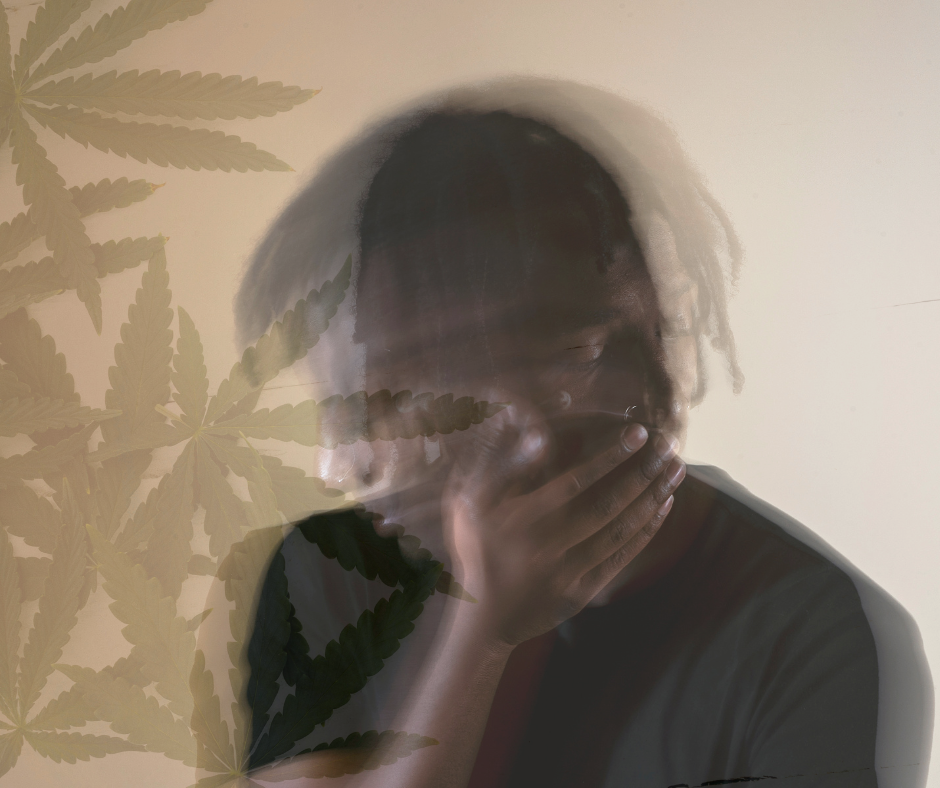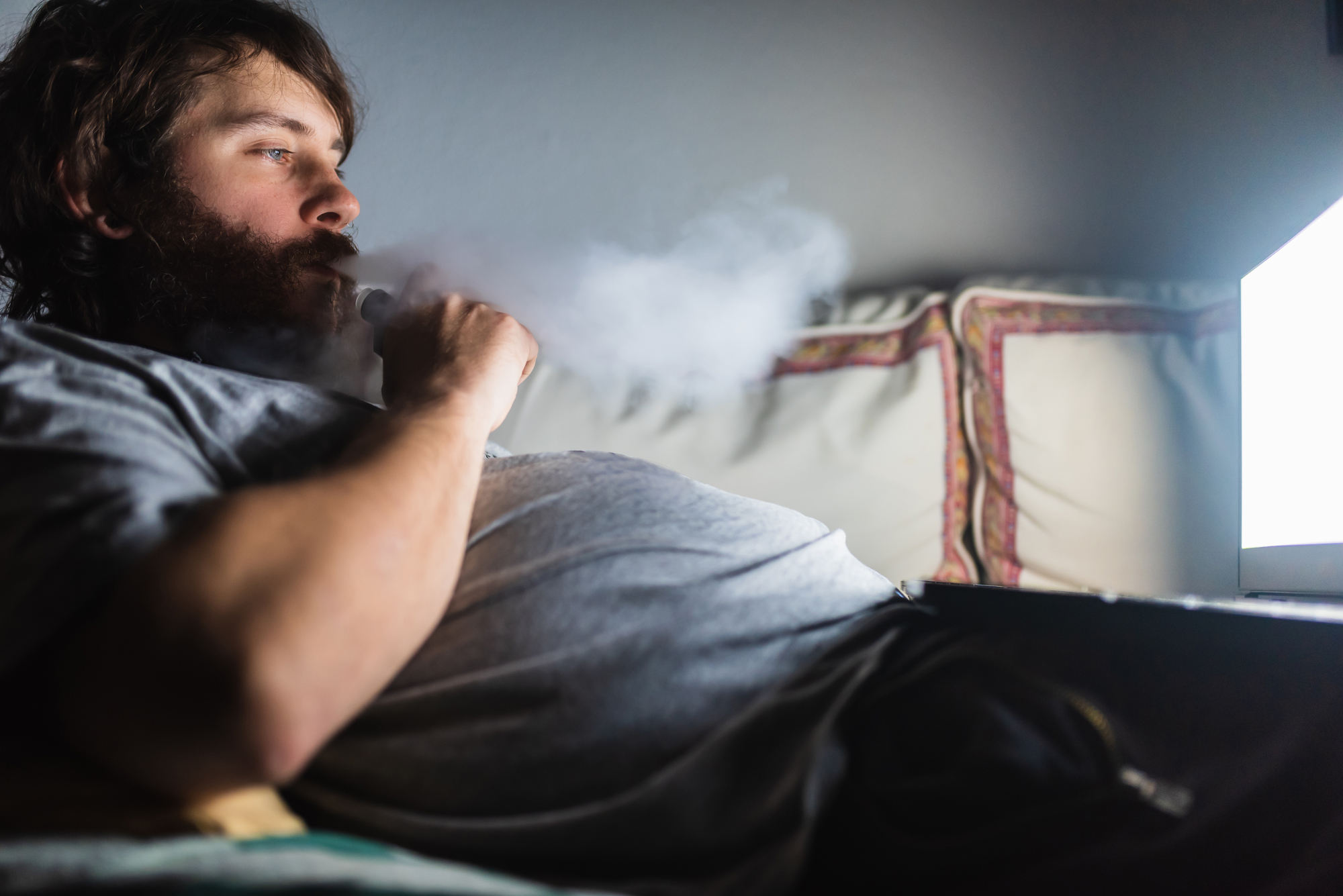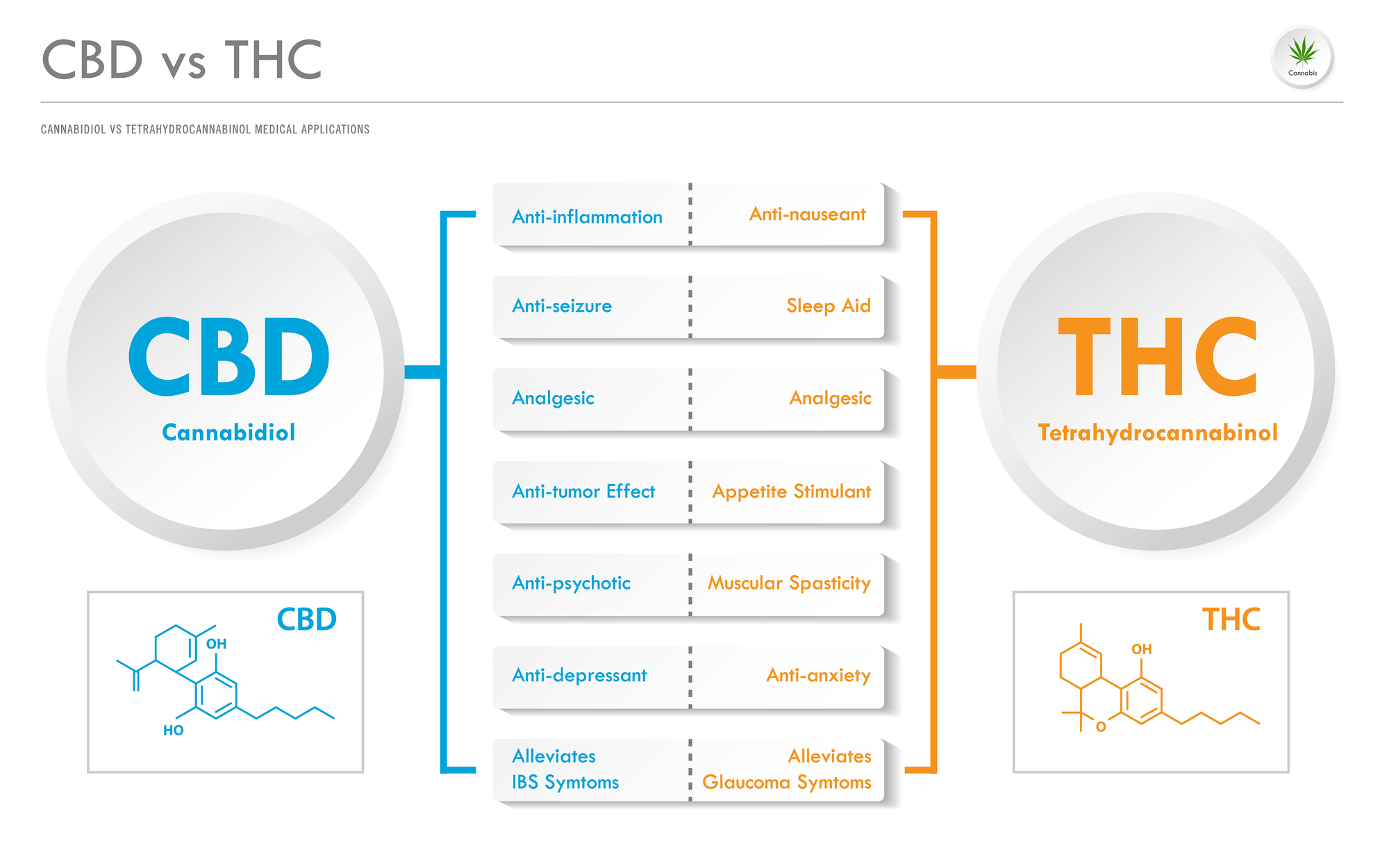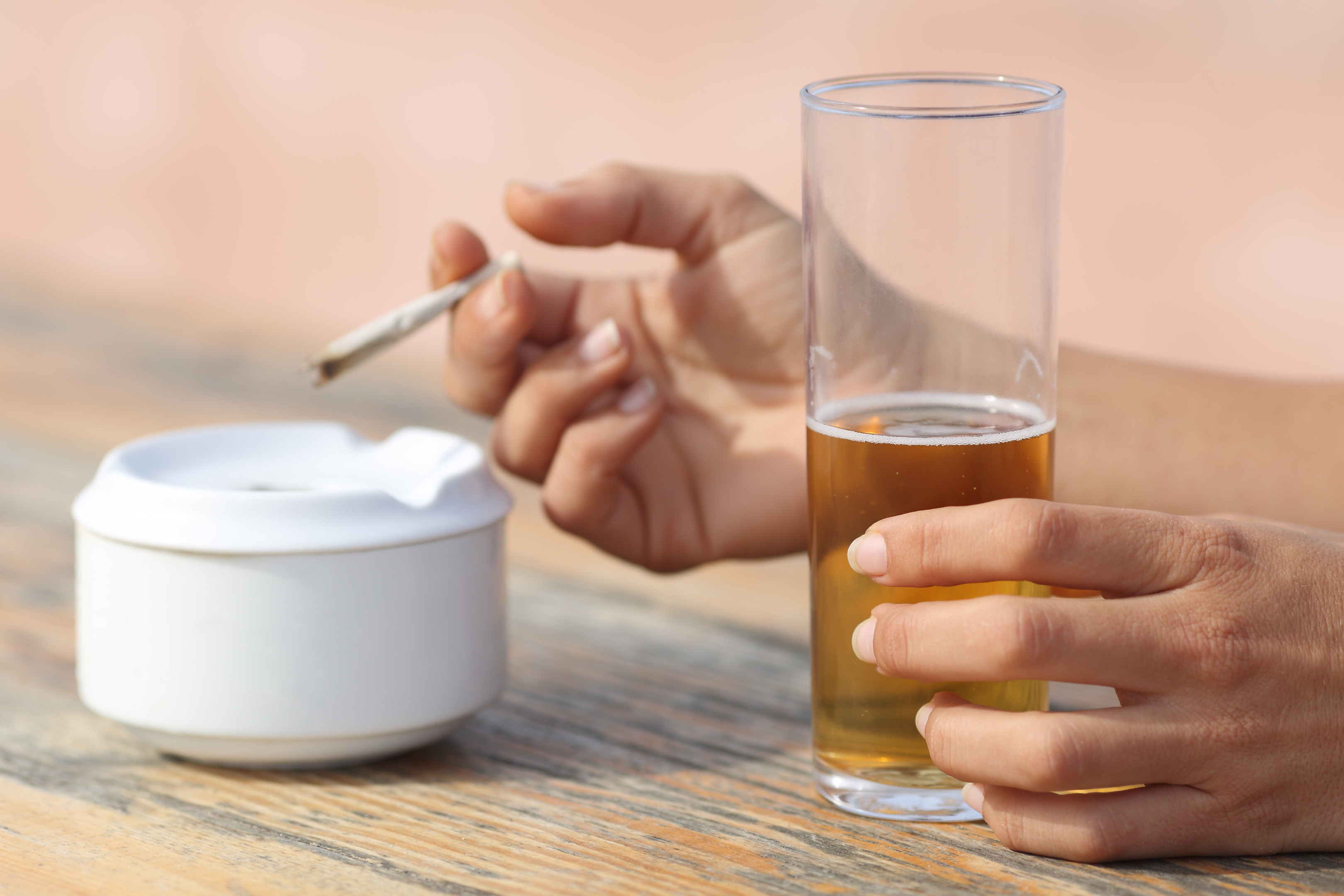

Budding Bliss: Exploring the Relationship Between Weed and Anxiety
Over 40 million Americans over the age of 18 have experienced an anxiety disorder. With such a large group of people looking for relief, many are looking for relief via cannabis and hemp for its stress relieving properties.
Beyond the incredible anti-inflammatory properties of cannabinoids, weed products offer consumers a plant-based alternative to balance mood and relieve stress – but how effective is cannabis for managing anxiety?
In this article, we will unravel the intricate relationship between weed and anxiety. We’ll be covering all of the pros and cons of using cannabis for anxiety, including some tips for avoiding cannabis-induced panic or other anxiety-triggering effects associated with weed.
It comes as no surprise that cannabis and hemp products are a popular way to destress the body and mind. Based on a 2018 survey, published in Cannabis and Cannabinoid Research, of over 2,400 people, 64% reported using CBD to treat specific mental health conditions. Anxiety came within the top three medical conditions users treated with CBD, alongside physical pain and depression.

Does cannabis relieve anxiety symptoms?
There are many cases where cannabis has been anecdotally reported to help cope with anxiety, especially in cases of social anxiety disorder. However, research that evaluates cannabis’ efficacy for anxiety is still in its infancy.
Animal studies have shown cannabis compounds have anxiolytic effects, however, other clinical reports suggest conflicting or even null results.
Further research must be done to confirm the therapeutic benefits of this psychoactive compound for managing anxiety, requiring further regulatory changes to support more viable methodology and greater clinical access for cannabis researchers.
For now, cannabis and cannabis users can seek out community-driven data on cannabis and anxiety. Despite the fact we may not have all the answers yet, we do have evidence that cannabis supports healthy nervous system function, a key factor in regulating mood, stress response, and many necessary bodily functions impacted by stress and anxiousness.
Cannabis and mental health

We are still in the early phases of cannabis research but have found a lot of compelling evidence linking cannabis and mental health therapeutics. Cannabis might just offer a safe alternative for certain prescription medications used to treat anxiety.
This 2014 meta-analysis investigated the correlation between anxiety, cannabis use, and cannabis use disorders in the general population. After surveying a hundred thousand individuals from 10 countries across the world they found a small positive association between anxiety and cannabis use, as cannabis use for anxiety disorders.
Most of the current questions scientists have about cannabis use for anxiety are around dosage and identifying which cannabinoids specifically relieve stress. It is possible that some cannabinoids, like CBD, may be more suited for treating symptoms of anxiety and stress compared to THC or even other anti-anxiety medications that come with drowsiness and other associated risks.
The role of weed in anxiety management
The endocannabinoid system (ECS) is the part of our nervous system that interacts with cannabinoids. It is expressed in all brain regions critical for processing anxiety, fear, and stress – playing a pivotal role in these responses. In response to stress, processing fearful memories, or anxiety, the ECS is thought to serve as a regulatory buffer for emotional response and protect the body from emotional and physical stress.
Cannabinoids seem to modulate interactive stress and reward networks including not just the ECS but also the dopamine system, and hypothalamo-pituitary-adrenocortical axis. These networks are key for establishing a balance between stress and well-being.
When used responsibly, cannabis can offer soothing benefits for the nervous system and offers a plant-based alternative for restoring wellness physically and emotionally. This can look like:
Mental health benefits of cannabinoids:
-
Managing mood and stress response
-
Balancing hormones
-
Neuroprotective properties
-
Balancing, increasing, or decreasing appetite
-
Better quality sleep
-
Mental clarity
-
A change in perspective
-
Connection to self and other
Each of these factors makes weed and hemp products compelling remedies for anyone suffering from nervousness or social anxiety. But first – doesn’t cannabis make people more nervous?
Well, yes, sometimes it can. There are ways you can prevent or reduce anxiety when consuming cannabis.
What is the most important information I should know about THC for anxiety?
If you are interested in trying cannabis products with THC, there are a number of ways you can protect yourself from adverse effects like panic or paranoia. It’s a rational concern, as anxiety appears to be one of the more common complaints from people who have experienced a cannabis-related illness or overdose.
As cannabis becomes more common across the states, we see more cases of ER visits related to the anxiety-inducing effects that cannabis can sometimes trigger. However, preventing panic can be relatively easy if you follow safe dosing instructions.
For most people, THC works best at lower doses. In fact, THC has been shown to decrease anxiety at lower doses (1-5mg), and can increase anxiety at higher doses. Sourcing your weed from a tested and reputable source can additionally ensure that you are taking exactly the dose you intend to take.
Of course, if you or someone you know is experiencing a cannabis-related panic attack, there are ways to reduce harm and de-escalate stress.
Slowdown and take slow and intentional deep breaths.
Make note of your surroundings, giving attention to sensory needs. If something feels right, get curious about it.
Change the conversation or the setting. This could look like going on a walk, sitting in your favorite chair, or changing the lighting and music.
Stay hydrated and maintain your blood sugar. If you are feeling light-headed, try a small snack like fruit or a sweet treat.
Find ways to pass time comfortably. The discomfort is temporary and will go away within 1-4 hours depending on your dose.
Sleep and allow plenty of time for rest if needed.
It is always a good idea to reach out to a medical professional if your symptoms worsen or persist longer than 8-12 hours after a heavy dose. Lastly, some consumers suggest taking CBD to counteract the effects of THC, though this may only plato the high, rather than reverse it.
CBD vs THC for anxiety

THC’s less psychoactive cousin molecule, CBD may actually be the bigger heavy hitter when it comes to anxiety relief. So far, cannabidiol (CBD) appears to decrease anxiety at both high and low doses.
A 2020 study found that small doses of CBD reduced anxiety both in animals and humans, without anxiogenic effects at higher doses. In this same study, it was observed that THC brought on a common anxiogenic response in human clinical trials, especially when consumed at higher doses.
Individuals in the study who consumed CBD-dominant strains of cannabis noticed a significant change in tension immediately after smoking and were less likely to experience paranoia. The CBD-dominant group showed the most improvement for anxiety symptoms and stress relief, while the THC-dominant group did not exhibit significant anti-anxiety effects.
There is still so much more to understand about the complex ratios of cannabinoids, and which provide the most mental health benefits. But at this time, CBD seems to be the front-runner for therapeutic use.
Risks and considerations

Cannabis is a relatively safe supplement on its own but may come with some additional health risks if it is mixed with caffeine, alcohol, and other prescription medications.
Over the last five years, we have seen recreational and medical cannabis sweep the nation. This has resulted in an uptick in ER visits due to cannabis-related psychiatric effects.
Cannabinoids may intensify the effects of other drugs, leading to complications and risks, especially when combined with heart medications or some anti-anxiety medications, like SSRIs and antidepressants.
Using weed to cope with anxiety can offer short-term benefits, however, well-controlled studies indicate that the use of cannabis is associated with an increased likelihood of substance use disorders. If you plan to try cannabis as a long-term option for anxiety relief, you may be at greater risk if you:
High risk for cannabis-induced panic or psychosis:
-
If you have experienced substance use disorder or have a family history
-
Are currently taking anti-anxiety or antidepressants
-
Are currently diagnosed with a psychiatric disorder(s) or have a family history of psychosis
Check with a trusted doctor before combining cannabis with other medications, or using cannabis as a replacement option for another prescription medication.
Risks of THC for anxiety
Beyond the risks outlined above, THC can trigger additional illnesses. Heavy use of cannabis can come with common side effects like fatigue, dizziness, or nausea, although more rare cases of serious illness via cannabis use can occur. Each of these illnesses may worsen symptoms of anxiety.
Rare but serious illness related to cannabis use
Legality of weed for anxiety
As of April 2023, Pennsylvania, North Dakota, and New Jersey approved medical cannabis use to treat diagnosed anxiety disorder. There is no doubt that this will become more common as states begin to loosen restrictions on both cannabis and other psychedelics for therapeutic application.
Our current lack of understanding in cannabis research is primarily a result of regulatory restrictions, though there is a brighter future ahead for cannabis scientists, doctors, and patients.
In May of this year, the federal government released their intentions to reschedule cannabis as a Schedule Three substance, creating slightly more access to medical research on cannabinoids. It is through critical examination that we will be able to determine the healing potential of this plant and provide valuable insight into the human mind and body.
Frequently Asked Questions
Why does Sativa make my anxiety worse?
Sativa strains can heighten anxiety in some individuals due to their high THC content, which can stimulate the brain and lead to increased feelings of anxiety and paranoia for those predisposed to these conditions.
How to come down from a high panic attack?
A deep breath will ease anxiety and symptomatic pain. It is impossible to predict panic attacks, and planning for them can be very helpful to help control them, and help to avoid panic attacks easily.
Can I use weed to cope with anxiety?
While some people use marijuana to manage anxiety, its effectiveness can vary greatly from person to person. It's important to note that in some cases, marijuana can exacerbate feelings of anxiety or paranoia. Always consult with a healthcare professional before using marijuana for anxiety to discuss the potential benefits and risks.








Leave a comment